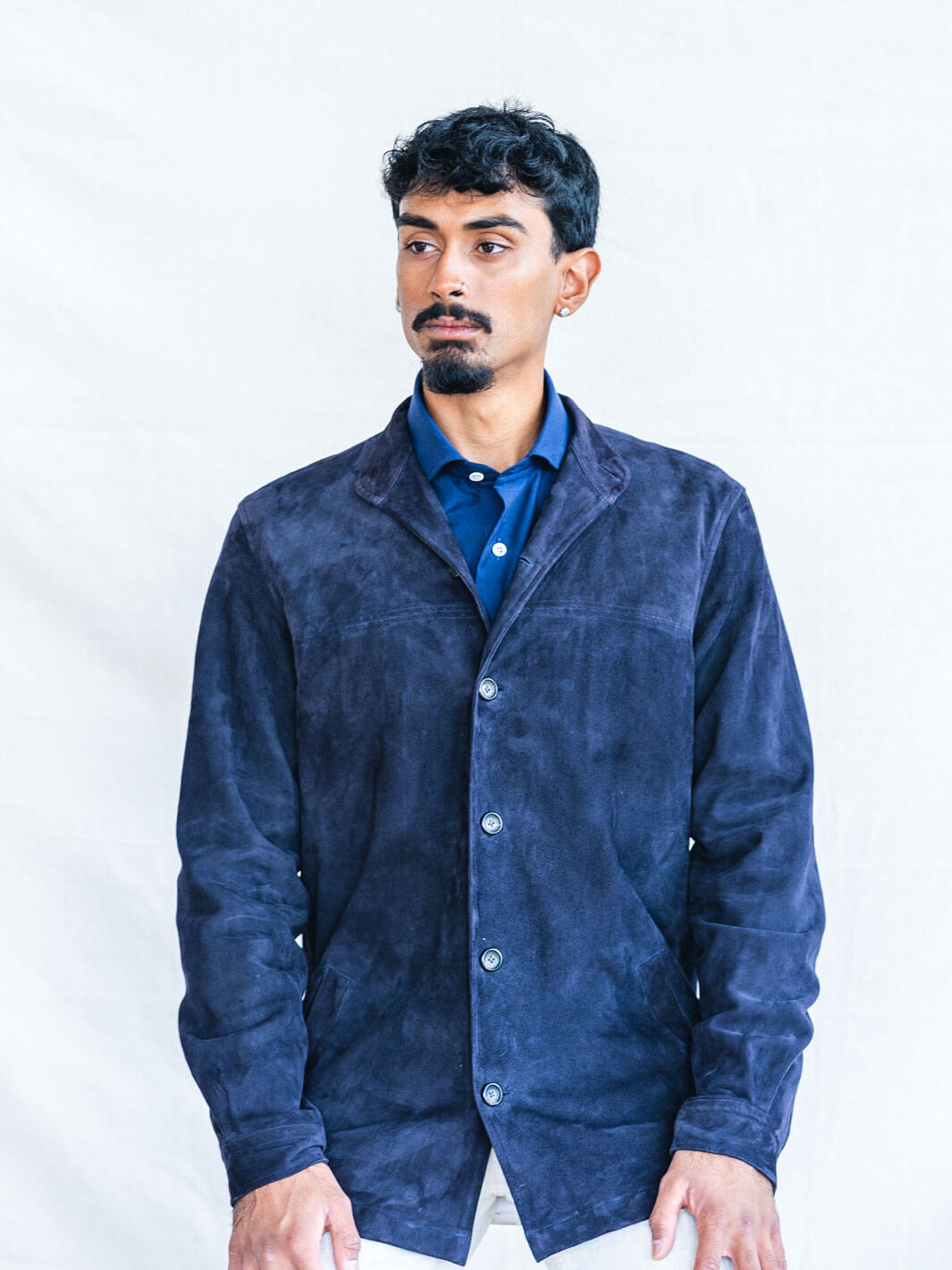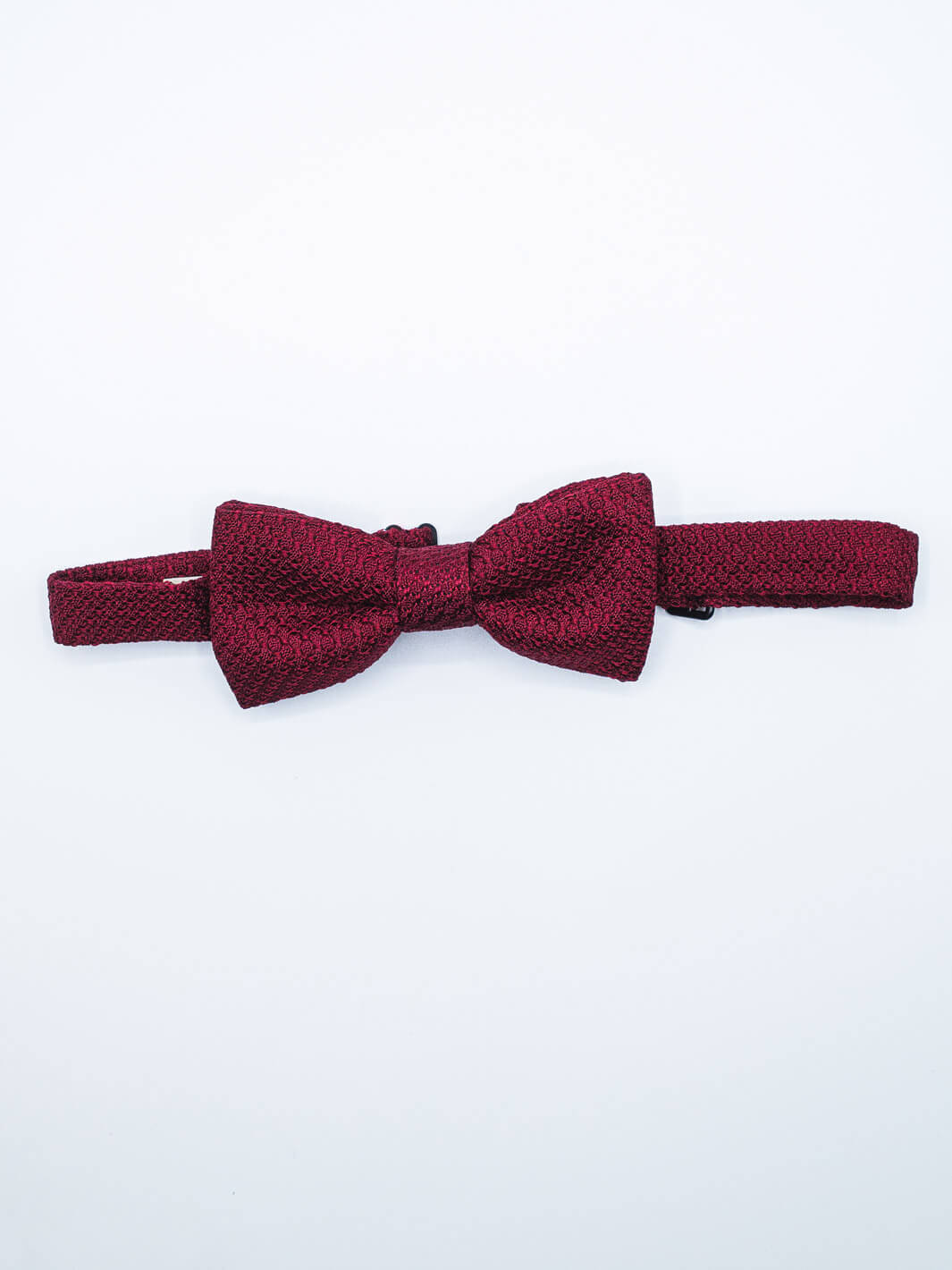In 1876, Lancashire, England–based Thomas Mason began making cotton shirt fabric for the London tailors who served the British aristocracy. That same year, on this side of the pond, Mark Twain released The Adventures of Tom Sawyer. Over in Europe, steam was giving way to electricity and oil, wrought iron to steel, and, in the sartorial world, the frock coat to the tailcoat and breeches to trousers.
In the two-plus centuries since, Thomas Mason’s exceptional fabrics have graced 19th-century industrialists, Victorian dandies, World War One pilots, royalty, rock stars, and—somewhere in between—just about every other discerning notable to have acquired a shirt from one of London’s finest haberdasheries.

Since 1992, Thomas Mason has been part of the Italian Albini Group—which now boasts eight factories, around 1,300 employees, and exports to more than 80 countries—and is today a major contributor to Anatoly & Sons’ Made-to-Measure shirt service. Today, it is among the most lauded fabric providers in the sartorial world. Its unique selling points? Bold patterns, superior yarn counts, state-of-the-art spinning and weaving technology, and—crucially—exceptional raw materials.
Drape, crease resistance, dye absorption—all these factors that make a great shirt begin “long before the shirt takes shape,” according to Fabio Albini, Creative Director of the Albini Group and a fifth-generation member of the family. “We believe that only the finest raw materials can give life to truly exceptional fabrics.”

“That’s why we source the most prestigious cottons in the world, including Giza 45, Giza 87, and West Indian Sea Island cotton, alongside premium European linen, cashmere or silk,” he said in an interview with Anatoly & Sons. “A superior cotton fiber allows for an ultra-fine, consistent yarn, which in turn enables deep, even dye absorption, crisp designs, and an exquisite hand feel. It allows us to weave extremely fine structures with precision, creating fabrics that are both luxurious and technically advanced.”

The results? A shirt that drapes beautifully on the body, feels soft yet substantial, resists creasing better, and has a subtle, natural luster—as well as sharper definition in a tailoring sense, and a quiet refinement that doesn’t go unnoticed.
And it’s not just about how a fabric looks: it’s how it moves, how it wears, how it performs, how long it lasts, and ultimately how it makes you feel. A well-made fabric will age gracefully, retain its structure and elegance over time, and remain a wardrobe staple for years—making it not only a smarter investment, but also a more sustainable one.

Timeless aesthetics, of course, are also crucial for a garment to last a lifetime. As such, the company’s designers need inspiration in abundance—and have an inexhaustible supply of it on site. “They spend a great deal of time immersed in our temperature-controlled historical archive, driven by a genuine passion for exploring its wealth of inspiration—and they love it,” Albini says. “The archive spans over 700 beautifully preserved volumes dating back to the 19th century, bursting with color and invention. Once quality is assured, its color, character, and bold design bring the fabric to life. We’ve always embraced a distinctly British flair: rich stripes, vibrant checks, a touch of eccentricity—all balanced by a sense of elegance and precision.”

Keeping one eye on the past while forging the future is key, according to Albini. “For us, the past is not a museum—it’s a living source of inspiration, constantly reinterpreted through a contemporary lens,” he says. “Heritage isn’t something static; it’s a living language, and we take pride in speaking it fluently while adapting its grammar—through color, proportion, scale—to the present day. Creativity doesn’t mean abandoning what came before; it means building on it, pushing it forward, and keeping it relevant.”
This rejection of the temporal in favor of the eternal—of fashion, in effect, in favor of style—is part of the broader human experience, Albini believes. “In a world marked by uncertainty—from global crises to environmental concerns—people are seeking out things they can rely on,” he says. “There's a renewed appreciation for quality, for cultural depth, for garments that feel grounded rather than fleeting. Style, after all, can be a form of stability. Neutral tones, clean lines, refined textures—these are not just aesthetic choices, but expressions of a mindset: one that values longevity over novelty, substance over spectacle. If timelessness is becoming the new luxury, we welcome it. We’ve always believed that elegance is not about shouting; it’s about whispering something meaningful—and making it last.”

Towards the end of this year, Thomas Mason will unveil a completely renewed collection—a selection of cut-length fabrics dedicated to tailors and shirtmakers. “A refined aesthetic, designed to meet the evolving needs of our clients and of the people they dress,” he says, adding: “In parallel, we’re preparing to launch a new catalogue for our most exclusive line—a celebration of exceptional fabrics made from the rarest and most precious raw materials, those at the pinnacle of our textile expertise.”
Meanwhile, 2026 will mark Thomas Mason’s 230th anniversary. “We won’t say too much just yet, but rest assured, there are exciting things in store,” Albini says. Given the company’s output to date, we don’t doubt him for a second.









